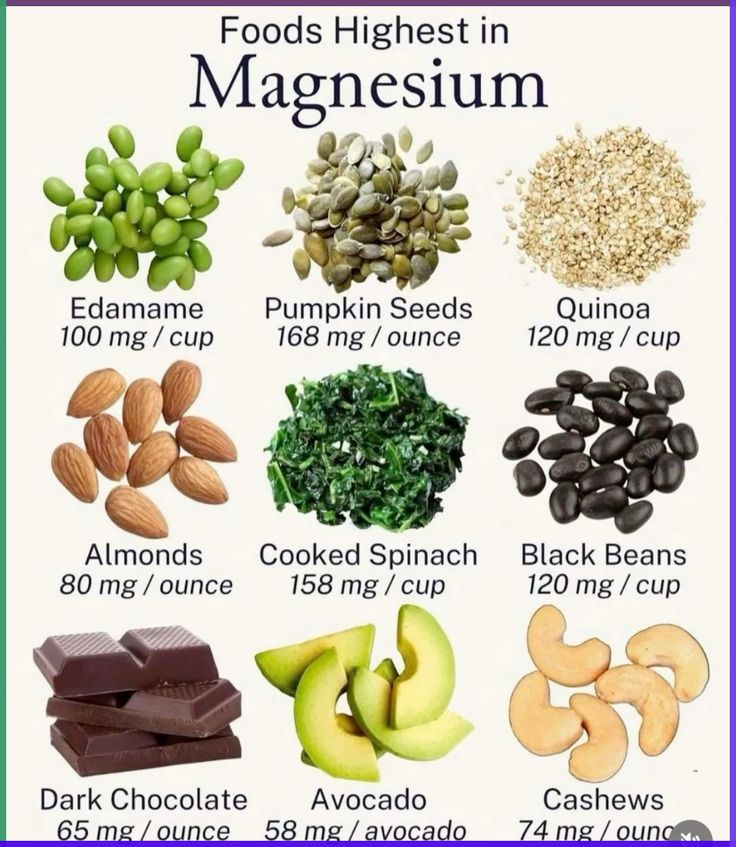In recent years, magnesium has gained attention as a crucial mineral for our overall health, and for good reason. This often-overlooked nutrient plays a vital role in numerous bodily functions and has been shown to provide significant benefits, especially for those with inflammatory conditions such as Endometriosis. In this blog post, we explore the benefits of magnesium and how it can be a game-changer.
What is Magnesium?
Magnesium is an essential mineral that supports over 300 biochemical reactions in the body. It is involved in processes such as muscle and nerve function, blood sugar control, and protein synthesis. Many people don’t get enough magnesium in their diet, leading to a range of potential health issues.
Health Benefits of Magnesium
Overall heart health
Magnesium helps regulate heart rhythm and blood pressure. Adequate magnesium levels can contribute to a lower risk of cardiovascular diseases and improve overall heart health.
Aids in Muscle Function and Relaxation
Magnesium plays a key role in muscle contraction and relaxation. It can help prevent muscle cramps and spasms and may alleviate symptoms of conditions like restless leg syndrome.
Regulates Blood Sugar Levels
This mineral helps manage blood glucose levels and insulin sensitivity, making it beneficial for individuals with diabetes or metabolic syndrome.
Improves Sleep Quality
Magnesium has a calming effect on the nervous system and can help improve sleep quality. It’s often used as a natural remedy for insomnia and anxiety.
Magnesium and Endometriosis: A Vital Connection
Endometriosis is a painful inflammatory condition where tissue similar to the lining of the uterus grows outside the uterus. It can cause severe menstrual cramps, chronic pelvic pain, and other debilitating symptoms. Managing Endometriosis often involves a combination of treatments, including medication and lifestyle changes. Magnesium can play a supportive role in this management process.
Magnesium has anti-inflammatory properties that can help reduce the chronic inflammation associated with endometriosis. By modulating the inflammatory response, magnesium may help alleviate some of the pain and discomfort associated with this condition.
The mineral helps relax muscles and reduce muscle cramps. For those with endometriosis, this can translate to decreased pelvic pain and fewer muscle spasms in the abdominal region.
Magnesium plays a role in hormone regulation. Proper magnesium levels can help balance estrogen and progesterone levels, which may help manage the hormonal imbalances often seen in endometriosis.
The stress and discomfort of endometriosis can take a toll on mental health. Magnesium has been shown to have mood-stabilizing effects and can help reduce symptoms of anxiety and depression, which are often comorbid with chronic pain conditions.
Magnesium supports digestive health and can help alleviate constipation, a common issue for individuals with endometriosis. Proper digestive function can also aid in reducing bloating and discomfort.
How to Increase Magnesium Intake
Getting enough magnesium can be achieved through dietary sources or supplements. Here are some magnesium-rich foods:
Leafy Greens: Spinach, kale, and Swiss chard
Nuts and Seeds: Almonds, pumpkin seeds, and sunflower seeds
Whole Grains: Brown rice, quinoa, and oats
Legumes: Black beans, chickpeas, and lentils
Fish: Salmon
Fruits: Bananas and avocados
Magnesium is a powerhouse mineral that supports various aspects of health, from cardiovascular and bone health to muscle function and mood stabilization. For individuals with endometriosis, magnesium’s anti-inflammatory, pain-relieving, and hormone-regulating properties can offer significant relief and improve quality of life. By incorporating magnesium-rich foods into your diet or considering supplements under medical guidance, you can harness its benefits and support your overall well-being.
It is always best to consult with a healthcare provider before starting any new supplement regimen to tailor a plan that’s right for you, especially if you have existing health conditions or are taking other medications.

